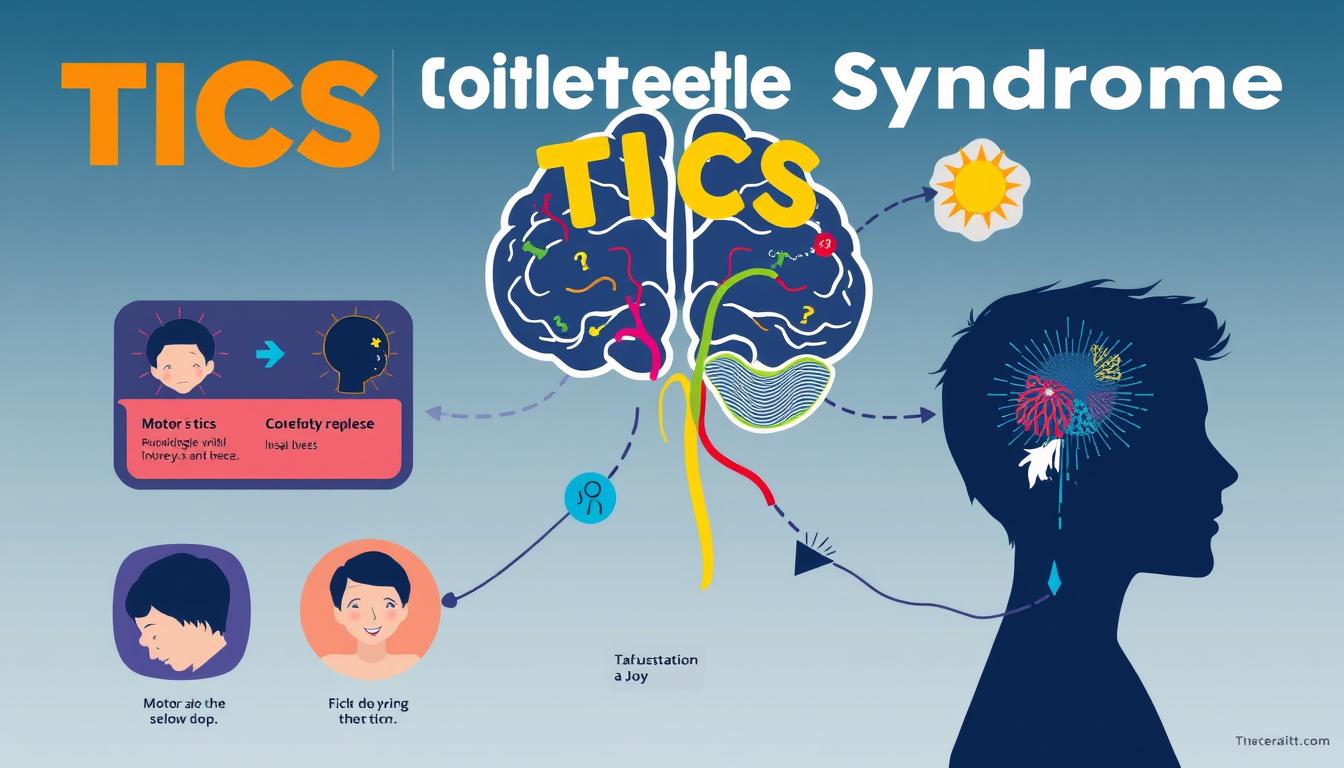Adolescent depression is a serious issue we can’t ignore anymore. Today’s fast world makes mental health challenges for our youth even harder. We must work together to understand and treat this problem.
By learning about adolescent depression, we can help our teenagers grow up strong and supported. This is key to their well-being.
Key Takeaways
- Adolescent depression is a growing concern in modern society, with significant impacts on mental and physical well-being.
- Understanding the symptoms and risk factors of teenage depression is critical for early intervention and effective treatment.
- A multifaceted approach that involves healthcare providers, school systems, and supportive home environments is essential for addressing this complex issue.
- Advancements in digital solutions and online resources offer new avenues for accessing mental health support and resources for today’s youth.
- Proactive prevention strategies and the development of healthy coping mechanisms can help build resilience and safeguard the mental health of our adolescents.
Understanding Adolescent Depression in Modern Times
In today’s digital world, it’s vital to talk about teenage mental health. The numbers are scary, showing more teens are dealing with depression. It’s important to know about symptoms and treatment for today’s youth.
Current Statistics and Trends
Recent data shows a worrying trend. About 1 in 5 teens in the U.S. face depression. This is a big jump from past generations.
Impact of Digital Age on Teen Mental Health
The digital world has changed how teens feel. Too much screen time, social media, and bullying online can lead to anxiety and depression. These issues are becoming more common among teens.
Risk Factors in Today’s Youth
Many things make it harder for teens to stay mentally healthy. School stress, family problems, and social pressures are just a few. These challenges make teens more likely to struggle with depression.
| Risk Factor | Impact on Teenage Mental Health |
|---|---|
| Academic Pressures | Increased stress, anxiety, and burnout |
| Family Conflicts | Feelings of isolation, resentment, and emotional turmoil |
| Peer Relationships | Social isolation, bullying, and self-esteem issues |
| Societal Expectations | Feelings of inadequacy, perfectionism, and overwhelming pressure |
Knowing the current stats, the digital world’s effects, and teen challenges helps us tackle the mental health crisis. We can then offer the right help and support.
Early Warning Signs Parents Should Never Ignore
As parents, we face the complex world of teen mental health. Spotting early signs of depression in our kids is key. By being alert and quick to act, we can offer the support they need.
Look out for signs like sadness, hopelessness, and irritability. Depression can also lead to sleep and eating issues, social withdrawal, and poor grades. Catching these signs early is the first step to getting them the symptoms and treatment they deserve.
Building a strong family support system is also vital. It’s about creating a space where our kids feel safe to talk about their feelings. This way, they can seek help without fear of being judged.
Acting fast is important because depression can harm a teen’s health and happiness. With care and attention, we can help them through this tough time. We can guide them towards healing and strength.
“The greatest weapon against stress is our ability to choose one thought over another.” – William James
By paying attention to our kids’ changes and building a caring family support system, we can help them beat depression. Early action and kindness can change their lives for the better.
Adolescent Depression: Symptoms and Treatment
Understanding adolescent depression is key. It involves physical, emotional, and behavioral signs. Spotting these early helps parents and caregivers act fast and seek help.
Physical Symptoms to Watch For
Depression in teens can show in many ways. Look out for:
- Changes in sleep patterns, such as excessive sleeping or insomnia
- Unexplained aches and pains, including headaches or stomachaches
- Fluctuations in appetite, leading to weight loss or gain
- Fatigue and lack of energy, even after a good night’s sleep
Emotional and Behavioral Changes
Depression also affects teens emotionally and behaviorally. Watch for:
- Persistent feelings of sadness, hopelessness, or irritability
- Decreased interest in activities they once enjoyed
- Withdrawal from friends, family, and social interactions
- Difficulty concentrating or making decisions
- Increased risk-taking behaviors or substance abuse
When to Seek Professional Help
If you see these signs in your teen, get help fast. A mental health expert can assess and suggest treatments. This might include antidepressants for adolescents or other therapies. Early action is vital for treating adolescent depression.

| Physical Symptoms | Emotional/Behavioral Changes |
|---|---|
|
|
The Role of School Environment in Teen Mental Health
Exploring adolescent depression, we see how school environments affect teens’ mental health. Schools shape teens’ social, emotional, and academic lives. This greatly impacts their mental health.
School-based Interventions: A Vital Step
School-based interventions are key in fighting teen depression. Schools can offer special programs and support. This includes mental health awareness, counseling, and peer groups.
The Power of Peer Relationships
Peer relationships are vital in school. During adolescence, friends greatly influence self-esteem and emotional health. Schools can help build positive friendships, supporting students’ mental health.
We will look into how schools can support teens. This can make a big difference in their mental health journey.

“The school environment has a profound impact on the mental health and well-being of our youth. By prioritizing mental health support and fostering positive peer relationships, we can create a nurturing space for our teenagers to thrive.”
Modern Treatment Approaches for Teenage Depression
Teenage depression needs a mix of treatments. Cognitive-behavioral therapy (CBT) is a top choice. It helps teens change negative thoughts and learn better ways to handle feelings and actions.
Cognitive-Behavioral Therapy Options
CBT for teens comes in many forms. There are one-on-one sessions, group therapy, and online programs. These help teens take charge of their recovery, teaching them skills to beat depression and feel better.
Medication Management Guidelines
Antidepressants for adolescents might be used in some cases. But, using meds needs close watch and teamwork between doctors, teens, and families. This ensures the best and safest results.
Alternative Treatment Methods
- Mindfulness, like meditation and yoga, helps teens deal with stress and find peace.
- Exercise boosts mood, energy, and mental health.
- Art and music therapy give teens healthy ways to express themselves and work through emotions.
Exploring different treatments helps find the best fit for each teen. Healthcare teams and families can work together to support teens with depression.

Building a Strong Support System at Home
Dealing with adolescent depression needs a full plan. The home setting is key. By building a family support system and boosting self-esteem in teens, we help them beat their struggles.
First, make your home a place where everyone feels safe to talk. Talk openly, listen well, and show empathy. Regular family talks help teens feel valued and secure.
Next, focus on boosting your teen’s self-esteem. Praise their wins, big or small. Let them do things they love and are good at. This way, they feel proud and confident.
- Encourage them in hobbies and clubs that make them feel good about themselves.
- Teach them healthy ways to deal with stress, like exercise or creative activities.
- Help them set and reach for goals that help them grow.
Also, don’t forget to get help from mental health experts when you need it. Work with therapists and counselors to help your teen fully. A strong family support and self-esteem can help teens beat depression and grow stronger.
| Strategies for Building Family Support | Techniques for Boosting Self-Esteem |
|---|---|
|
|
By building a strong family support system and self-esteem building at home, we empower our teens to conquer depression and succeed.
Digital Solutions and Online Resources for Teens
In today’s world, there are many online tools for teens with depression. These include mental health apps, virtual counseling, and online support groups. They offer helpful strategies and professional advice.
Mental Health Apps and Platforms
Many mobile apps help teens with mental health issues. They track moods, offer therapy exercises, and provide peer support. Calm, Headspace, and Crisis Text Line are some popular ones.
Virtual Counseling Options
Online therapy is a private and convenient option for teens. It connects them with therapists who focus on youth counseling. BetterHelp and Talkspace are examples of these services.
Online Support Communities
Teens can also find support in online mental health communities. Sites like The Mighty and NAMI forums let them connect with others. They can share experiences and learn from peers.
By using these digital tools, teens can manage their mental health better. They can find coping strategies and get youth counseling help. This way, they can overcome challenges with the right support.
Prevention Strategies and Coping Mechanisms
Dealing with adolescent depression can seem tough. But, we can use practical steps to help teens stay strong and healthy. By tackling this issue early, we help teens manage their feelings and grow into confident adults.
Fostering Self-Esteem
Cultivating a strong sense of self-esteem is key. We should help teens see their strengths and celebrate their wins, big or small. This helps them focus on their positives and feel good about themselves.
Developing Healthy Coping Strategies
Teens need effective coping strategies. Mindfulness, journaling, exercise, and hobbies are great ways to deal with tough times. Giving them these tools helps them handle emotions and challenges in a healthy way.
Fostering a Supportive Environment
A supportive and nurturing environment is vital. This means building strong support systems and encouraging open talks. It’s about making sure teens feel heard, understood, and valued.
Promoting Positive Lifestyle Habits
Teens should adopt healthy lifestyle habits. This includes getting enough sleep, eating well, and staying active. These habits are essential for their well-being and help them cope with life’s ups and downs.
By using these strategies, we can help teens develop strong coping strategies and self-esteem building skills. This creates a supportive and resilient space for them to grow and succeed in their teenage years and beyond.
Conclusion
Dealing with teenage mental health issues, like depression, needs a team effort. We must spot early signs, get professional help, and have a supportive family. This helps our young people through a key time in their lives.
The digital world affects teens’ mental health a lot. Knowing the risks helps us give them the care they need. We can offer therapy, look into medicines, or try other treatments. Our teens should get all the help they can.
Keeping lines of communication open, creating caring schools, and using digital tools can help. By focusing on teen mental health and building strong support systems, we can help them face today’s challenges. This way, they can grow up to be strong and resilient.



